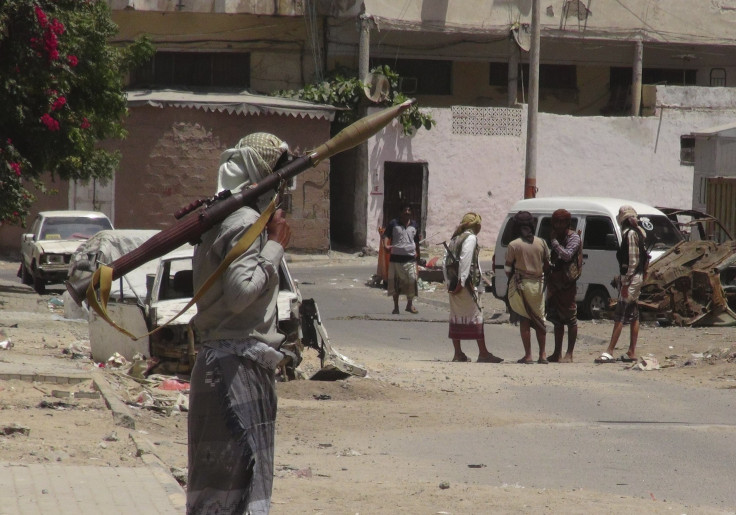Yemen's Aden Airport Sees Heavy Fighting, At Least 5 Dead

Update as of 6:28 a.m. EDT: Yemeni army forces claim they have taken control of Aden Airport, Al Arabiya reported. Earlier on Thursday, fighting had broken out between rival political factions, including those loyal to ousted president Abed Rabbo Mansour Hadi and supporters of former ruler Ali Abdullah Saleh.
Original story:
Yemen’s Aden airport saw heavy fighting between rival factions on Thursday, forcing all air traffic to be canceled, local officials said. At least five people died in the clashes, according to Agence France-Presse.
The fighting took place between forces loyal to Aden-based Abed Rabbo Mansour Hadi, who is internationally recognized as the country's legitimate president, and those loyal to former ruler Ali Abdullah Saleh, The Star Tribune reported. The fighting took place near a base used by forces loyal to Saleh and the allied Islamist Houthi movement that currently holds power in the capital of Sanaa. The fighting later spread to encompass residential districts and the airport area, leading to nearby roads being closed, reports said.
Over 100 passengers, including an Associated Press (AP) reporter, who had boarded a flight to Egypt, were ordered to evacuate after machine gun fire and explosions were heard nearby, AP reported. At least two shells reportedly hit the airport’s grounds, anonymous security officials said.
Aden’s airport is a major hub in the region and an important route of contact for the increasingly isolated Hadi, who enjoys the support of nearby Persian Gulf allies but is increasingly isolated in his own country. Hadi had declared himself president after he fled to Aden in February, nullifying a previous resignation that he made after Houthi forces placed him under house arrest, following their capture of the presidential palace and other critical government buildings in January. Since then, he has been organizing support both at home and abroad.
The Iran-backed Houthi militants have found themselves increasingly cut off from support after they captured the capital of Sanaa and several other northern provinces last year, a move that the United Nations, regional powers and the U.S. condemned as a coup. Several countries have withdrawn their diplomatic staff over security concerns. The U.N. has also imposed a travel ban and an asset freeze on Saleh, alleging that he is trying to undermine the country’s stability. The Houthis have accused Saudi Arabia, which supports Hadi’s government, of similar acts.
The turmoil that has wracked the country’s complex, shifting political alliances has also proved fruitful for al Qaeda in the Arabian Peninsula (AQAP), which Washington reportedly considers to be the terror group’s most dangerous franchise. Since the crisis began, the Houthis have attempted to push farther south, but have faced stiff resistance from AQAP and their tribal allies. AQAP has also seized an army base in the country and took credit for the assassination of a Houthi colonel in October, the Long War Journal reported.
As the political situation worsens in the country, the U.S., which had previously provided military aid and training to Yemen’s government when Saleh was in power, said on Wednesday that it could no longer account for $500 million in equipment, including small arms, ammunition, night-vision goggles, patrol boats and vehicles.
© Copyright IBTimes 2025. All rights reserved.





















